A heart transplant involves surgery to remove a patient's damaged heart and replace it with a healthy donor heart. The donor must be deemed brain dead by two or more medical professionals before the donor's heart can be removed. A medical professional must determine that a heart transplant is the best course of action for treating your heart failure before they can put you on the waiting list. A medical team also verifies that you are in good enough overall health to undergo the transplant procedure.
| Country | Cost | Local_currency |
|---|---|---|
| United Kingdom | USD 50000 - 1000000 | 39500 - 790000 |
| Turkey | USD 45000 - 1800000 | 1356300 - 54252000 |
| Spain | USD 44300 - 80000 | 40756 - 73600 |
| United States | USD 1240700 - 1664800 | 1240700 - 1664800 |
| Singapore | USD 60000 - 80000 | 80400 - 107200 |
Treatment cost
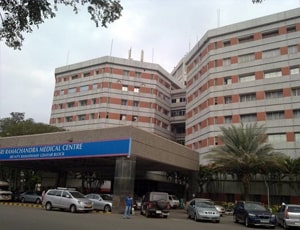
Types of Heart Transplant in Sri Ramachandra Medical Centre and its associated cost
| Treatment Option | Approximate Cost Range (USD) | Approximate Cost Range (INR) |
|---|---|---|
| Heart Transplant (Overall) | 50617 - 91784 | 4165328 - 7462887 |
| Standard Heart Transplant | 50768 - 71140 | 4164039 - 5847761 |
| Advanced Heart Transplant | 70777 - 91383 | 5851997 - 7499497 |
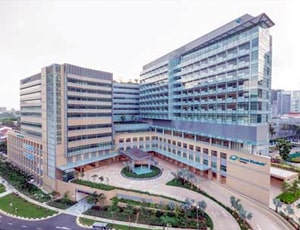
Mount Elizabeth Novena Hospital located in Novena, Singapore is accredited by JCI. Also listed below are some of the most prominent infrastructural details:
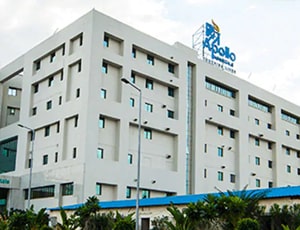
Types of Heart Transplant in Apollo Hospital and its associated cost
| Treatment Option | Approximate Cost Range (USD) | Approximate Cost Range (INR) |
|---|---|---|
| Heart Transplant (Overall) | 55980 - 100944 | 4677348 - 8126793 |
| Standard Heart Transplant | 55958 - 80177 | 4691395 - 6553047 |
| Advanced Heart Transplant | 80129 - 101927 | 6462163 - 8160252 |

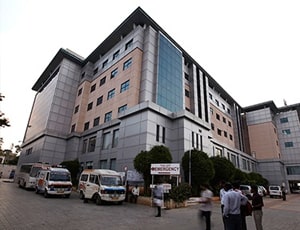
Types of Heart Transplant in BGS Gleneagles Global Hospitals and its associated cost
| Treatment Option | Approximate Cost Range (USD) | Approximate Cost Range (INR) |
|---|---|---|
| Heart Transplant (Overall) | 56733 - 99701 | 4645525 - 8122047 |
| Standard Heart Transplant | 55510 - 80222 | 4512330 - 6368839 |
| Advanced Heart Transplant | 79146 - 102928 | 6362382 - 8133088 |

Types of Heart Transplant in Indraprastha Apollo Hospital and its associated cost
| Treatment Option | Approximate Cost Range (USD) | Approximate Cost Range (INR) |
|---|---|---|
| Heart Transplant (Overall) | 57212 - 99909 | 4619000 - 8201299 |
| Standard Heart Transplant | 57370 - 79155 | 4529037 - 6344439 |
| Advanced Heart Transplant | 77756 - 102218 | 6414202 - 8339047 |
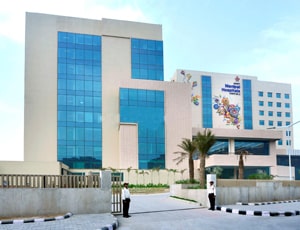
Types of Heart Transplant in Manipal Hospital, Dwarka and its associated cost
| Treatment Option | Approximate Cost Range (USD) | Approximate Cost Range (INR) |
|---|---|---|
| Heart Transplant (Overall) | 50671 - 91179 | 4159565 - 7482576 |
| Standard Heart Transplant | 50736 - 71379 | 4144668 - 5842026 |
| Advanced Heart Transplant | 70786 - 91369 | 5812927 - 7524951 |
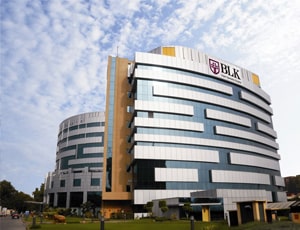
BLK-Max Super Speciality Hospital located in New Delhi, India is accredited by NABL. Also listed below are some of the most prominent infrastructural details:
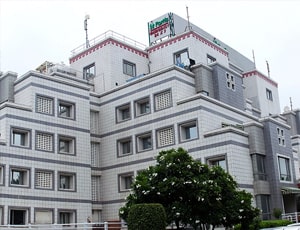
Types of Heart Transplant in Fortis Flt. Lt. Rajan Dhall Hospital and its associated cost
| Treatment Option | Approximate Cost Range (USD) | Approximate Cost Range (INR) |
|---|---|---|
| Heart Transplant (Overall) | 50673 - 91061 | 4164390 - 7515555 |
| Standard Heart Transplant | 50561 - 71346 | 4147562 - 5844489 |
| Advanced Heart Transplant | 70714 - 91206 | 5799392 - 7498223 |
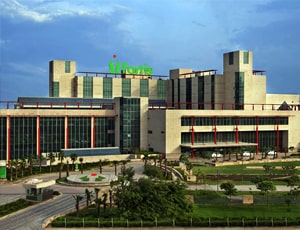
Fortis Memorial Research Institute located in Gurugram, India is accredited by JCI, NABH. Also listed below are some of the most prominent infrastructural details:
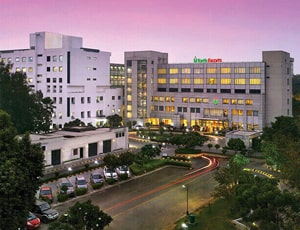
Types of Heart Transplant in Fortis Escorts Heart Institute, Okhla and its associated cost
| Treatment Option | Approximate Cost Range (USD) | Approximate Cost Range (INR) |
|---|---|---|
| Heart Transplant (Overall) | 56714 - 102895 | 4511472 - 8312711 |
| Standard Heart Transplant | 56810 - 78366 | 4640573 - 6569309 |
| Advanced Heart Transplant | 79700 - 103415 | 6379522 - 8245810 |
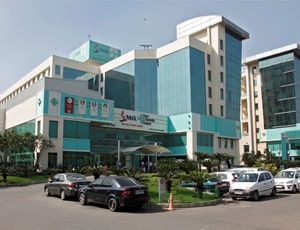
Max Super Speciality Hospital is a multi- super speciality intensive care centre, which has an excellent team of doctors, most advanced infrastructure of global standards in services and diagnosis, best practices for treatment, and the latest technology of machinery.
Infrastructure & Facilities:
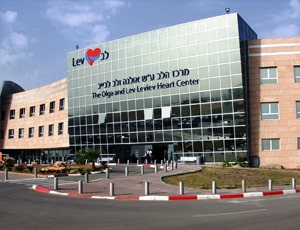
Sheba Medical Center located in Tel-Hashomer, Israel is accredited by JCI. Also listed below are some of the most prominent infrastructural details:
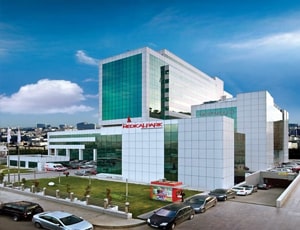
Types of Heart Transplant in Medical Park Goztepe Hospital and its associated cost
| Treatment Option | Approximate Cost Range (USD) | Approximate Cost Range (TRY) |
|---|---|---|
| Heart Transplant (Overall) | 101128 - 191871 | 2996439 - 5851225 |
| Standard Heart Transplant | 100720 - 145584 | 3069113 - 4447653 |
| Advanced Heart Transplant | 146439 - 187526 | 4353135 - 5811088 |

Types of Heart Transplant in VM Medical Park Bursa Hospital and its associated cost
| Treatment Option | Approximate Cost Range (USD) | Approximate Cost Range (TRY) |
|---|---|---|
| Heart Transplant (Overall) | 102930 - 193397 | 3094409 - 5777711 |
| Standard Heart Transplant | 100770 - 145353 | 3102780 - 4314433 |
| Advanced Heart Transplant | 148384 - 191254 | 4440550 - 5677392 |
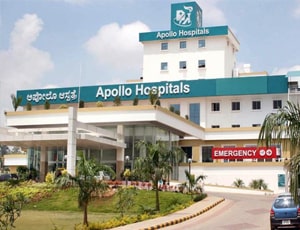
Types of Heart Transplant in Apollo Hospitals Bannerghatta and its associated cost
| Treatment Option | Approximate Cost Range (USD) | Approximate Cost Range (INR) |
|---|---|---|
| Heart Transplant (Overall) | 55655 - 99319 | 4621442 - 8289336 |
| Standard Heart Transplant | 55412 - 77348 | 4651061 - 6329162 |
| Advanced Heart Transplant | 78536 - 100633 | 6508401 - 8351358 |
A heart transplantation is required in patients with a diseased heart. It is often recommended to patients whose heart function does not improve even after surgeries and continuous and prolonged use of medications. During the heart transplant procedure, the diseased heart is replaced with a fully functional heart. The heart used for replacement is retrieved from a patient who is brain-dead but is still on a life support system.
Because of the unavailability of a sufficient number of brain-dead donors, heart transplant surgery is still a rare procedure, even though it is a life-saving procedure. Moreover, there are just a handful of families who agree to donate the heart of their close ones because of aesthetic reasons. Even though heart transplant procedure is a major one, the chances of survival after the surgery is generally good. However, heart transplant survival rate largely depends on how well the patient has been taken care of after the surgery. Heart transplant surgery is mostly performed in patients with heart failure, which may happen because of any of the following conditions:
Heart transplantation surgery is often coupled with the transplant of some other organ in patients with specific conditions. These organs may include kidney, liver, or lung, depending on the condition of the patient and the ailment he or she is suffering from. Not every heart patients, however, is eligible to undergo the heart transplant surgery. Patients with a previous history of cancer, a major illness that would anyway shorten their lifespan, active infection, advanced age, or unhealthy lifestyle habits are not recommended to undergo heart transplant surgery.
The following steps are typically performed during the heart transplant surgery:
You may expect to receive a couple of medications after the surgery to ease the pain. You may also be kept on a ventilator for a few hours or days to ease beating. Additionally, a chest tube may be put to drain fluids from the chest. You may also expect to receive fluids through IV following the surgery.
Recovery after heart transplantation surgery is slow. You will be required to visit the surgeon for frequent follow-ups. They will advise you to undergo a series of tests every time you visit, including echocardiograms, electrocardiograms, and blood tests. You will also be required to undergo heart biopsies to check for signs of organ rejection. During a biopsy, a pathologist will look into a tiny heart tissue under a microscope. Additionally, you will be required to make several long-term adjustments into your schedule after you’ve had a heart transplant. You will be required to take immunosuppressants and make adjustments for medications. You will require an intensive emotional support during cardiac rehabilitation. Therefore, make sure to have your near and dead ones around you during the recovery phase.
You will also be advised to make several adjustments to your lifestyle to speed up recovery. This includes guidelines pertaining to exercising, healthy diet, sunscreen use, and tobacco consumption.
Ask your healthcare adviser for the best multiple options and choose the one that meets your expectations